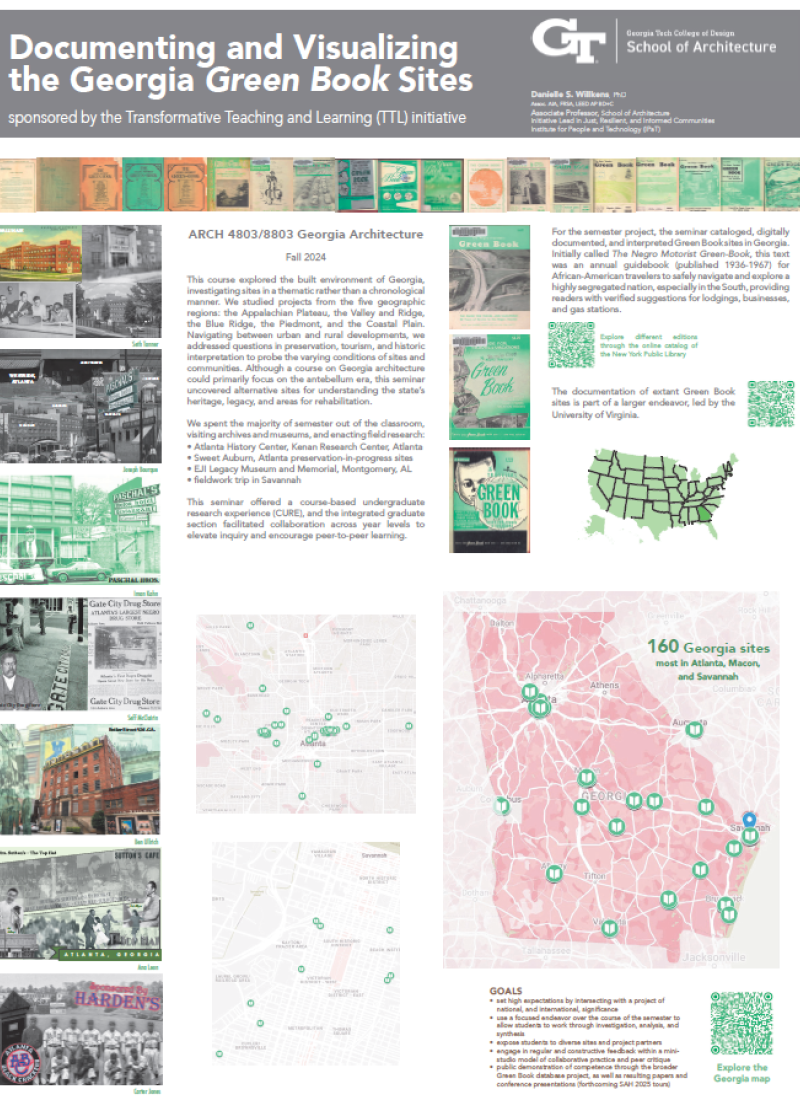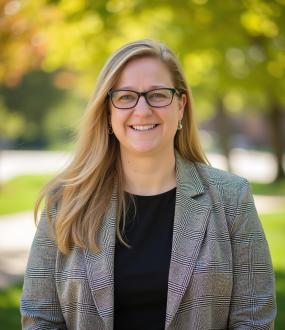This project endeavored to catalog, digitally document, and interpret Green Book sites in Georgia. Initially called The Negro Motorist Green-Book, this text was an annual guidebook (published 1936-1967) for African-American travelers to safely navigate and explore a highly segregated nation, providing readers with verified suggestions for lodgings, businesses, and gas stations. This was a protected guide, and was largely unknown to those outside of the Black community. Beyond an inventory, this projecaimed to identify sites under threat that may benefit from digital documentation and advocacy.
This course explored Georgia architecture and the regional importance of the Green Book using readings, interactive letures, and site visits (e.g., walking tour around GT, Atlanta History Center, EJI in Montgomery). There were three key deliverables: (1) a Georgia tourism poster with a ‘key’ to explain the imagery and collage elements, (2) student-led discussion sessions of assigned readings and project interfaces (e.g., storymaps, narrative podcasts, etc.), and (3) the research and documentation of Green Book sites in Atlanta and Savannah that were assigned to individual students. These aim to address cognitive learning outcomes through improved public communication and information dissemination through a tagged Google map and enhanced database, and behavioral learning outcomes by engaging in digital humanities work to see interdisciplinary connections between place, history, and legacy.
From our in-class discussions, students were very engaged in the active research component of the course, even when it was challenging.
Beyond the requirements for the course, One student has also continued research on one building, the Butler Street YMCA, about which we are pursuing options for a publication.
Seven students assisted in the Green Book tours along Auburn Avenue on May 1 and 4, 2025, as part of the Society of Architectural Historians’ (SAH) Annual International conference in Atlanta. Pamplet for this event is available at https://www.dropbox.com/t/uzr6oKjL8gOP6dWa
2025 GTREET (Georgia Tech Retreat Exploring Effective Teaching)
2025 Celebrating Teaching Day


I’ve appreciated engaging with the TTL Initiative as an opportunity to learn from others, and the components that addressed assessment were particularly informative: emphasizing progress, scaffolding low-stakes content, and developing outcomes that addressed cognitive, behavioral, and affective aspects. Lessons learned will be applied to all of my courses moving forward, and it think it will make for more engaged class sessions and more impactful projects.